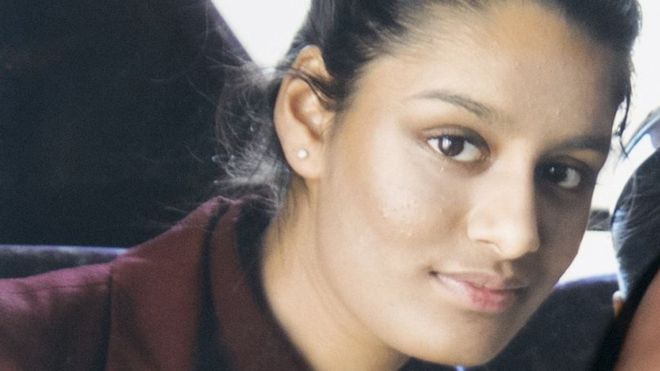Shamima Begum: A Crisis Of Citizenship
This event is now fully booked – Q&A livestream to follow!
When Frontline member Anthony Loyd found Shamima Begum in al-Hawl refugee camp, northern Syria, he helped unearth a series of unanswered questions for Western societies – and kickstarted a national debate in the United Kingdom. When it comes to citizens returning from IS territory, what are our legal and moral responsibilities? Is there a two-tier system developing, with citizenship as privilege for the children of Muslim immigrants, and nationality as right for European ‘natives’? With first-hand reporting from Anthony Loyd, and comment from columnist Nesrine Malik and expert on jihadist movements Shiraz Maher, we’ll be discussing the fallout of British Home Secretary Sajid Javid’s decision to revoke Shamima Begum’s citizenship. This discussion will be chaired by presenter of BBC HardTalk Stephen Sackur.
Chair
Stephen Sackur is the presenter of HARDtalk, the BBC World News flagship current affairs interview programme. He has been a journalist with BBC News since 1986 and has interviewed many high-profile guests for BBC World News, BBC News Channel and BBC World Service. Before taking over HARDtalk, he was based in Brussels for three years as the BBC’s Europe Correspondent. Prior to this, he was the BBC’s Washington Correspondent from July 1997. He served as the BBC Middle East Correspondent in both Cairo (from 1992 to 1995) and Jerusalem (from 1995 to 1997). He has contributed countless articles to The Observer, London Review of Books, New Statesman, The Guardian and the Daily Telegraph. In November 2010, he received the International TV Personality of the Year Award from the Association of International Broadcasters.
Speakers
Anthony Loyd is senior foreign correspondent for The Times. His career began in 1993 when he started reporting from the war in Bosnia. Since then he has written from innumerable conflict zones, including Syria, Iraq, Afghanistan, Libya, Chechnya and Kosovo. He is author of My War Gone By I Miss It So and Another Bloody Love Letter. He has witnessed the atrocities committed by Bashar al-Assad’s regime, the brutal rise of the self-styled Islamic State and the desperate struggle of the Syrian people caught between the two. You can read about his experiences following the case of Shamima Begum here.
Nesrine Malik is a British Sudanese columnist and features writer for The Guardian. She was born in Sudan and grew up in Kenya, Egypt and Saudi Arabia. She received her undergraduate education at the American University in Cairo and University of Khartoum, and her post graduate education at the University of London. Alongside her journalism career she previously spent ten years in emerging markets private equity. She was named Society and Diversity Commentator of the Year at the 2017 Comment Awards. You can read her writings about Islamophobia in the UK here.
Shiraz Maher is Director of the International Centre for the Study of Radicalisation (ICSR) and a lecturer in non-state actors for the Department of War Studies at King’s College London. He currently leads the Centre’s research on the Syrian and Iraqi conflicts and also researches Salafi-Jihadism. Maher is a recognised expert on the current Middle East crisis and jihadist movements. His book, Salafi-Jihadism: The History of an Idea has been widely acknowledged as a ground-breaking exploration of the political philosophy behind contemporary jihadist movements. His writings on the Syrian conflict were shortlisted for the Orwell Prize in 2016. You can view his comments on the case of Shamima Begum on Newsnight here.
 Watch the video stream of Shamima Begum: A Crisis Of Citizenship
Watch the video stream of Shamima Begum: A Crisis Of Citizenship




